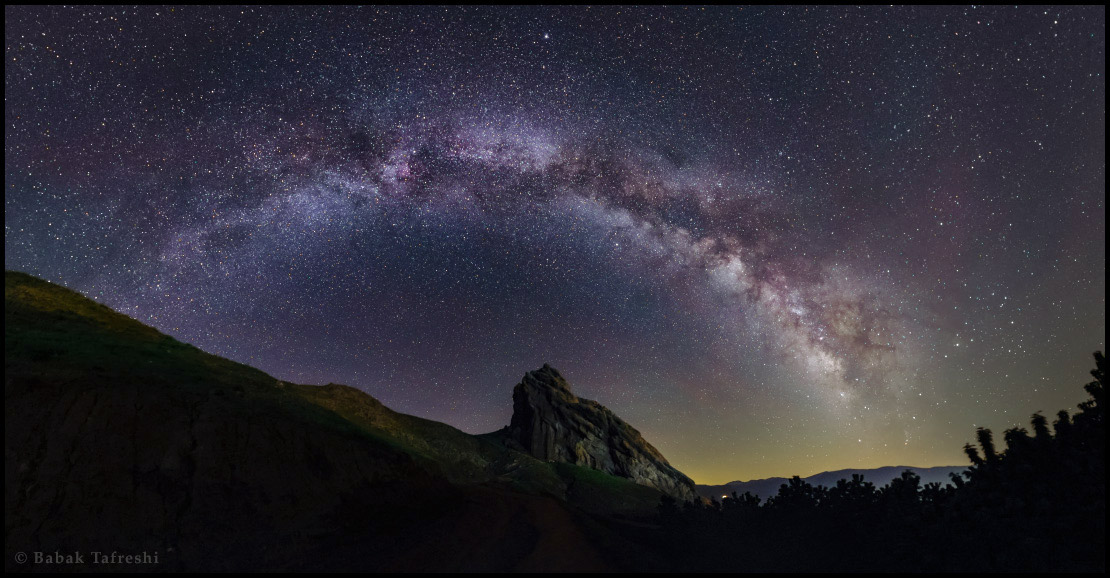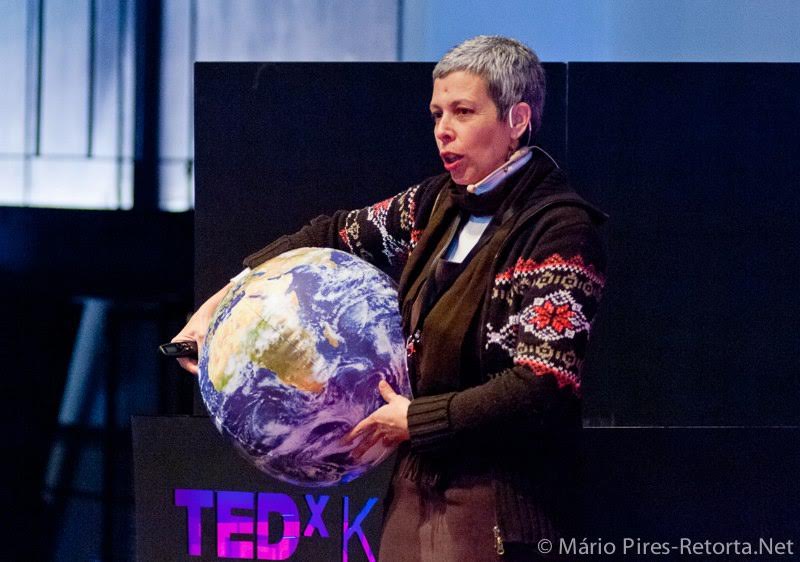GAM 2017 Blog
- Published: Friday, April 28 2017 04:00
By Rosa Doran

Often, when you tell someone that you are an astronomer you immediately receive a smile spiced with surprise. The feeling is mixed; and you wonder what does that smile mean ? The person looking at you:
Option 1 → really loves astronomy and is happy with the prospect of some nice exchange of information;
Option 2 → knows nothing about the topic but would really like to learn more;
Option 3 → thinks you maybe can make their horoscope.
In any case the feeling is good. Either you have the opportunity to discuss some nice news related to the field, or share some amazing facts that the person might not have heard before or simply share awareness for the difference between science and beliefs. What really drives me mad is when someone pretends they know exactly what astronomy is all about with a sentence like: “oh cool, I also like to see the stars ...” as if this encompasses everything. Drives me mad when people that can have influence think of astronomy as a far sister to important science or just as a romantic need to know more, which in fact is not important at all to our daily lives. My immediate reaction is to scream out loud: “wake up, astronomy is the essence of what we are!!! It is not just some constellations we see in the skies, if we are lucky. We are literally made out of star dust and if there is more life in this vast Universe it will most probably be made of the same material as we are. We don’t yet know if the Universe we naively call our own is all there is and we have no idea where it all came from and what will be its future. But we do know a lot, considering we are a very tiny piece of this amazing place that we are barely starting to understand.
Well, what is the reason for that. Simple, light pollution!!!
I am sure I have your attention now, don’t I J You are probably thinking if there could be some subtle, yet not explored consequence of light pollution in our brains. Well, not directly but indirectly by preventing the natural interest of human beings to question our very existence. Those of us who have the privilege to find ourselves under amazing starry skies know that it is impossible not to question what is this amazing cluster of jewels hanging above our heads. If there are more habitable worlds out there and if we will ever be able to go there. Human beings that don’t relate themselves to the skies will be unaware of our place in the cosmos, and as such, not self-aware of our illusional self-importance can be a menace to our life in this beautiful planet. Have you seen people like this around? Ask them if they know the scale of the Universe or how many galaxies are out there? You will be surprised. I will not ask if you know since you are reading this article, so you certainly know J!
City lights, or better saying, poorly built streets illumination, are the main source of light pollution. It translates into bulbs illuminating the skies, affecting the whole ecosystem and deeply affecting creatures, including ourselves. It doesn’t serve its main purpose which is illuminating the streets and creating a better and safer environment and it “steals” our dreams.
This can be easily solved with properly built poles where lamps are fully shielded. The result is less energy expenditure, less harming to the environment and improvement of our health and of course giving back to us the beautiful dark skies, full of stars. Although the solution is simple, its implementation not so much. It is necessary to create awareness about this problem, to identify the causes, highlight consequences and propose solutions.
Now you are probably thinking, yeah, right … so you really expect people to do that? Well, not really. In partnership with NOAO, my institution (NUCLIO) started, in 2009, a project called Dark Skies Rangers (https://www.globeatnight.org/dsr/; http://dsr.nuclio.pt/). The main objective is to involve students in actions to prevent light pollution in their localities. They are invited to conduct audits of the school’s streets, the streets where they live and any other location they can reach. They later deliver their audit to the mayor’s office, with the identification of how much the municipality could save and also pointing out the diverse problems originated by this problem. Hundreds of schools and thousands of students have already participated in the project and we are very confident that the future looks a lot less bright and full of wonder!!!
Starry skies to everyone.
 Rosa Doran holds a degree in physics and a PhD in Scienec Education. her professional activities from 1979 to 1992 were connected to industry management in finance and administrative areas. Since 1992 her main activities are related to science research, public outreach and science education. Her outreach and science education activities in Portugal are developed in cooperation with NUCLIO - Núcleo Interactivo de Astronomia, a non-profit association from which she is a founding member and president of the Executive Council. At an international level she is the vice-president of the executive council of the Global Hands-on Universe Association, a global institution devoted to Astronomy Education.
Rosa Doran holds a degree in physics and a PhD in Scienec Education. her professional activities from 1979 to 1992 were connected to industry management in finance and administrative areas. Since 1992 her main activities are related to science research, public outreach and science education. Her outreach and science education activities in Portugal are developed in cooperation with NUCLIO - Núcleo Interactivo de Astronomia, a non-profit association from which she is a founding member and president of the Executive Council. At an international level she is the vice-president of the executive council of the Global Hands-on Universe Association, a global institution devoted to Astronomy Education.
She is also the chair of the Galileo Teacher Training Program , one of the cornerstones and a legacy of the International Year of Astronomy 2009. Vice-Chair of the panel of education of COSPAR. Coordinator of the Portuguese Language office of Astronomy for Development for the IAU (International Astronomical Union). She is the general coordinator of international projects for NUCLIO. At an European Level I can mention a few important EC funded projects to which NUCLIO was the national representative: Discover the Cosmos, European Hands-on Universe, Open Discovery Space, Inspiring Science Education among others.
Rosa was the community building leader for the project Go-Lab (online labs for science education) and is now the PI for the project PLATON (a project that promotes Inquiry and Interdisciplinarity). She leads the cooperation efforts with other international outreach and educational programs in Portugal: International Astronomical Search Collaboration, Dark Skies Rangers, Astronomers Without Borders, Universe Awareness, etc.








